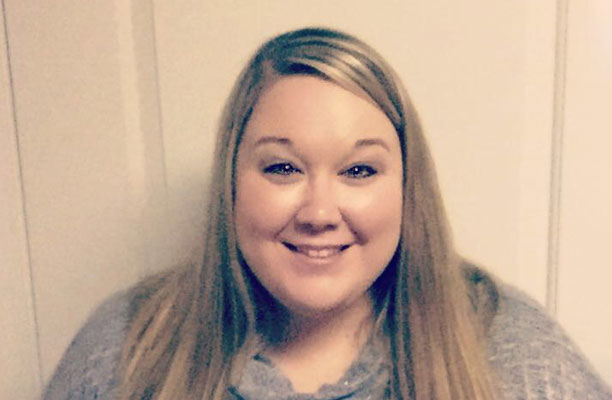
Brittany Breen is a family licensing worker in St. Louis, MO. She was nominated as an Outstanding Caseworker by a mother who adopted two children from foster care with Brittany’s help.
In her nomination form, the mother wrote:
“We worked with Brittany for about four years. We were well into the process of adopting the two children we were fostering when my husband was offered a job in Tennessee, where I have family. We wondered if we would be able to finalize the adoptions. But with Brittany’s support, we were able to both give the children a permanent home and make a move that is good for our whole family.”
We talked with Brittany about this case and her work with other foster families.
This sounds like a case that could have gone differently, with the children remaining in care. Was that your fear?
Yes. At first it seemed as though the parents might have to choose between the awesome opportunity of being close to her family and adopting the brother and sister that they had been fostering for two years.
I knew they were the best family for those children, and together, we made it work. The father moved first, with the three children they had by birth and through adoption, and the mother stayed in Missouri until the siblings’ adoptions were finalized nearly four months later.
Why do you think this mother suggested you as an “Outstanding Caseworker”?
Well, we’ve gone through a lot together!
I think she recognized that I was advocating for her family—both with the team and in court—and doing extra work arranging visits and being flexible with the family circumstances. I know she appreciated that I kept the lines of communication open—updating her after court hearings and always responding to her phone calls. Things that might seem simple but mean a lot.
In addition to communication, what do you see as other keys to success in working with foster families?
Empathy and flexibility are huge. I really try to meet families where they are and give them whatever they need to feel supported. Sometimes that means not waiting until they call, but sending them a quick text simply asking how things are going. I’ve noticed that sometimes families don’t even realize they are struggling until someone asks.
Of course, it’s also important to build relationships with the families. Be honest with them. Recognize that what they are doing is difficult—and that while they are doing a job, they are also being parents. I do things like send them a card on Mother’s Day or Father’s Day, and I think they appreciate that.
It sounds like your job extends far beyond 9 to 5. How do you avoid burning out?
It’s not always easy, I’m not going to lie.
First, I focus on what I can do for families. I can’t take away the children’s pain or their trauma or what happened in the past. But I can help the parents who are caring for them.
I try to maintain boundaries. I take work home with me—anybody who does this job does, regardless of what they say. But if a family calls in the evening or weekend and it is not an emergency, I will call them back the next day.
I am also very conscious about making time for my family and friends. I have monthly dinners with girlfriends who also work in child welfare. And I have what I refer to as a core person—which is my mother. She is the person I call when something goes really wrong. She hears me out and lets me vent. Just like my families need support—I need support too.